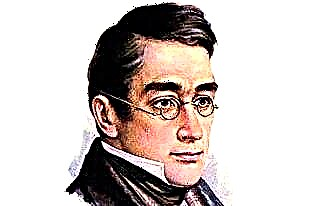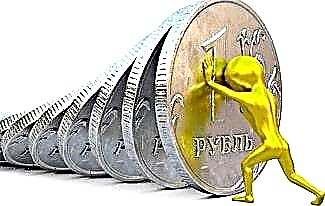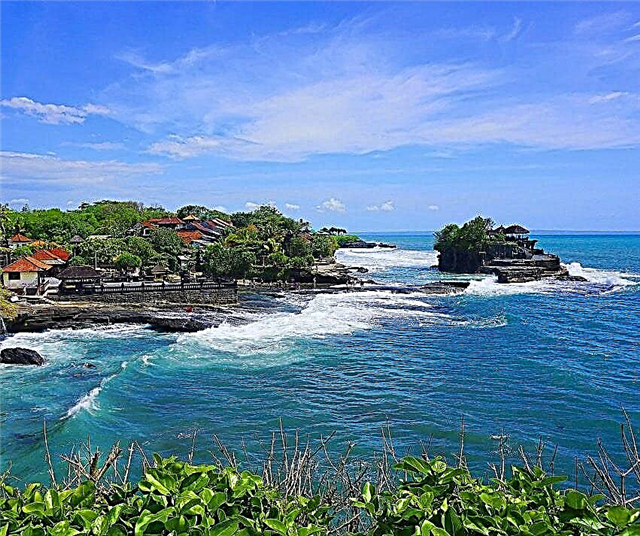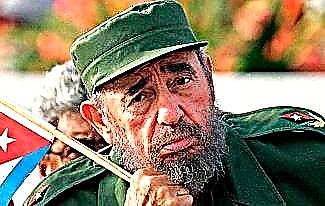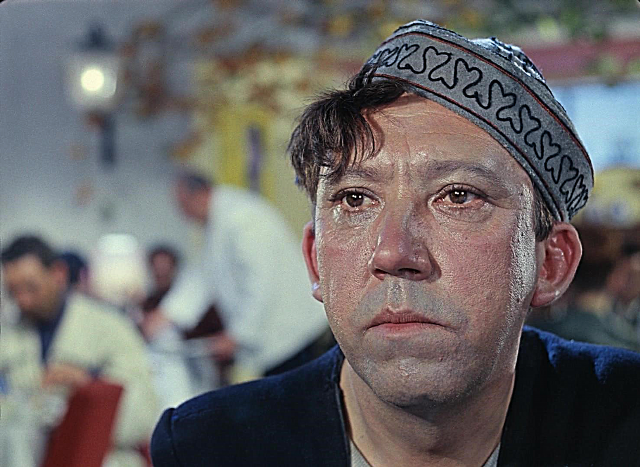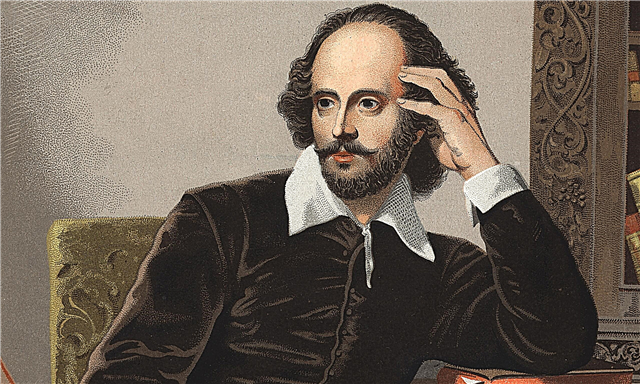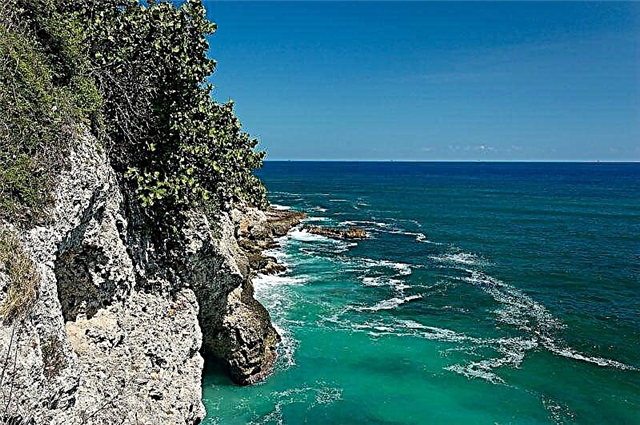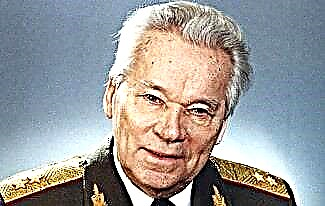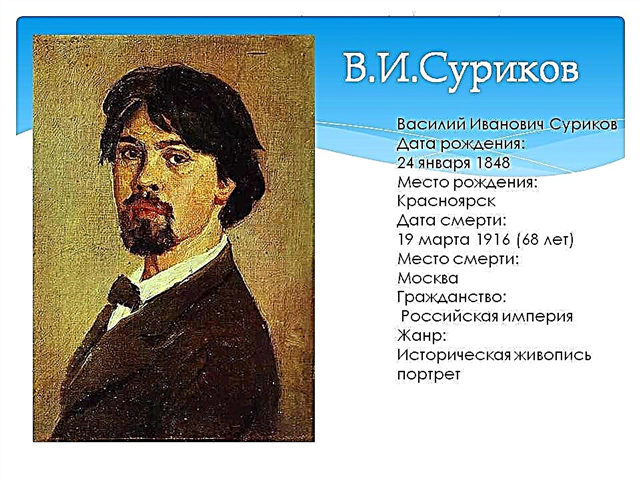Yuri Yulianovich Shevchuk (born 1957) - Soviet and Russian rock performer, songwriter, poet, actor, artist, producer and public figure. Permanent frontman of the DDT group. Founder and head of LLP "Theater DDT". People's Artist of the Republic of Bashkortostan.
There are many interesting facts in Shevchuk's biography, which we will talk about in this article.
So, before you is a short biography of Yuri Shevchuk.

Biography of Shevchuk
Yuri Shevchuk was born on May 16, 1957 in the village of Yagodnoye, Magadan Region. He grew up and was brought up in the Ukrainian-Tatar family of Yulian Sosfenovich and Fania Akramovna.
Childhood and youth
In early childhood, Yuri began to show the ability to draw, as a result of which he continued to improve his skills in subsequent years of his biography.
During his school years, Shevchuk began to take private music lessons. At the age of 13, he and his family moved to Ufa. Here he began to visit the House of Pioneers, where he continued to study drawing. At the same time, he enrolled in the school ensemble.
At the same time, Yuri began to master playing the guitar and button accordion. An interesting fact is that his drawings have repeatedly won various awards. In this regard, the young man even wanted to connect his life exclusively with art.
After receiving the certificate, Shevchuk successfully passed the exams at the local institute, choosing the art and graphic faculty. During his student years, he actively participated in amateur performances.
Once, Yuri fell into the hands of the records of Western rock bands, which made an unforgettable impression on him. As a result, he was carried away headlong by rock and roll, which was only gaining momentum in that era. Together with his friends, he organized an amateur band performing Western hits.
Having become a certified artist, Yuri Shevchuk was assigned to a village school for 3 years, where he taught drawing. In parallel with this, he performed at various creative evenings, at one of which he was awarded a prize at the author's song competition.
At the same time, the musician began his first problems with the authorities for playing rock and roll, which in the 70s was presented as an alien phenomenon for a Soviet citizen. Returning home, Shevchuk became friends with the religious dissident Boris Razveev, who gave him the New Testament and the forbidden works of Alexander Solzhenitsyn to read.
Music
Yuri began to take his first serious steps in music in 1979, joining an unnamed group. The guys gathered for rehearsals at the local House of Culture.
The next year the musicians decided to name their collective - "DDT". They managed to record their debut magnetic album, consisting of 7 songs. In 1980, for beating a police captain, Shevchuk was threatened with prison, but according to him, his father saved him from imprisonment.

A couple of years later, the "Golden Tuning Fork" competition was organized in the USSR, where all interested artists could participate. Yuri's group sent their records and successfully passed the qualifying round. As a result, "DDT" became a laureate of this competition with the hit "Don't Shoot".
The disc Compromise, published in an underground studio, quickly gained popularity in the country. Thanks to this, the musicians have become on a par with the famous Leningrad rock bands.
In subsequent years, Yuri Shevchuk's biography increasingly began to have conflicts with the authorities. Songs from the disc "Periphery", in which provincial life was depicted in an unattractive light, caused great discontent among the government, and, consequently, among the special services.
Shevchuk was charged with social rebellion and supporting religion for the song "Fill the sky with kindness." The songwriter was often summoned to the KGB offices, criticized his work in the press, and also banned him from recording in studios.
This led to the fact that DDT was forced to move to Sverdlovsk. Yuri traveled all over Russia, performing at semi-legal concerts and home concerts. Later he and his family settled in Leningrad.
Here Shevchuk continued to write new songs and make a living in a variety of ways. During these years of his biography, he managed to work as a janitor, fireman and watchman.
In the spring of 1987, DDT performed at the Leningrad Rock Festival, receiving many positive reviews from critics and colleagues. During the reign of Mikhail Gorbachev, a "thaw" begins in the country, which allows Yuri to officially perform in various cities.
In 1989, the band presented a collection of their best songs, I Got This Role. The following year, the premiere of the film "Spirits of the Day" took place, in which Shevchuk got the key role.

After the collapse of the USSR, such hits of DDT as "Rain", "In the Last Autumn", "What is Autumn", "Agidel", etc. gained special popularity. He continued to criticize the current government in the person of Boris Yeltsin, as well as the war in Chechnya, about which he sang in the song “Dead City. Christmas".
Shevchuk also spoke extremely negatively about Russian pop artists, openly criticizing their work. He expressed his protest in the songs "Phonogrammer" and "Pops".
An interesting fact is that Yuri managed to secretly install a dictaphone into the microphone of Philip Kirkorov when he was performing on stage. Thus, he showed what sounds the artist actually made on stage. A loud scandal erupted, which is still mentioned in one way or another in the press and on TV.
Over the years of his creative biography, Shevchuk published dozens of solo albums, and also became the author of many soundtracks for films. In addition, he is the author of 2 collections of poetry - "Defenders of Troy" and "Solnik".
In the new millennium, Yuri continues to be one of the most famous rock musicians, in connection with which he constantly performs at major rock festivals, and also gives concerts both at home and abroad. In 2003 he was awarded the title of People's Artist of Bashkortostan.
In the spring of 2008, the man took part in the “March of Dissent” after the announcement of the election results. A couple of years later, he received an invitation to meet with Prime Minister Vladimir Putin. At it, he asked Putin if he was planning to truly democratize the country and whether the participants in the “March of Dissent” would be prosecuted again.

The Prime Minister declined to answer this question. However, Putin's question to Shevchuk: "What is your name, excuse me?" - became a popular meme on the Web. Shortly before that, the government banned the holding of a rock festival organized by Yuri Yulianovich.
In this regard, the musician joked that if he went on stage with an instrument from the Lube group, the authorities would be loyal to this. By the way, back in the early 90s, Shevchuk was in open conflict with Nikolai Rastorguev, criticizing him for "licking" the current government.
Personal life
The first wife of Yuri Shevchuk was Elmira Bikbova. In this marriage, the couple had a boy, Peter. When the girl was barely 24 years old, she died of a brain tumor. In her honor, the musician wrote the album "Actress Spring", and also dedicated songs to her: "Trouble", "Crows" and "When you were here."
After that, Shevchuk did not live long with the actress Maryana Polteva. The result of their relationship was the birth of their son Fedor. Now the actual wife of the musician is Ekaterina Georgievna.
Yuri Yulianovich actively participates in charity, preferring to do it in secret from the public. According to Chulpan Khamatova, it was he who stood at the origins of the "Give Life" foundation.
Yuri Shevchuk today
Now the rocker continues to perform at concerts, but due to the pandemic, their format has undergone changes. He, like many of his colleagues, sings songs via the Internet online.
Shevchuk Photos






